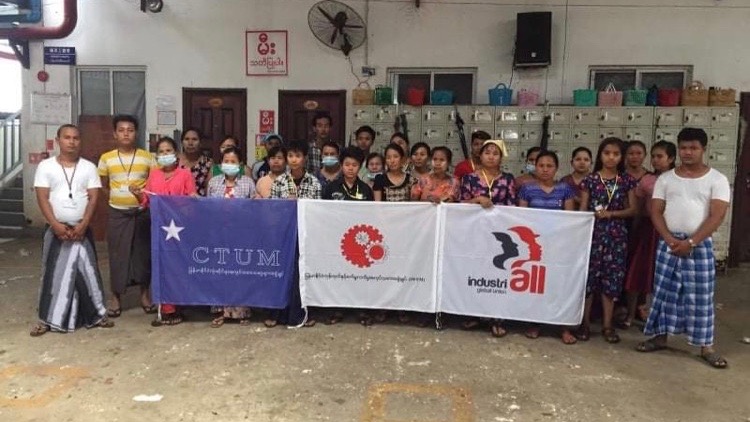Unions in Myanmar have finally won the right to organize (freedom of association) through guidelines formed under the Action, Collaboration, Transformation (ACT) agreement, reported Global IndustriALL Union on October 20, Tuesday. The ACT was the result of negotiations between the Industrial Workers Federation of Myanmar (IWFM), Global IndustriALL Union, and the Employer Working Group of ACT brand suppliers and global brands that source their supplies from Myanmar. Several dispute resolution settlements between Myanmar-based suppliers and local trade unions have been concluded under the ACT during the COVID-19 crisis.
The unions’ handling of the negotiations with international brands under the ACT has set a precedent in Myanmar, as per activists. Experts believe that freedom of association and collective bargaining are the “best way to deal with conflicting interests and to achieve mutual respect and joint responsibility”.
On August 11, when Kamcaine Manufacturing, a supplier for ACT brands, dismissed its 57 workers on the pretext of the COVID-19 crisis, a negotiation led by the IWFM settled the issue with the company and the workers. Seven executive members of the union, who had been dismissed, were later reinstalled.
Similarly, in another dispute resolution, three union leaders who were dismissed by Glory Fashion earlier in May on the accusation of violating the employment contract were reinstalled in the company. Glory Fashion initially attempted to refute the ruling of the Township Conciliation Body, which had ruled in the favor of the workers, but the unions’ persistence in referring the complaint to the Arbitration Body, and then to the Arbitration Council, led to the three workers finally being reinstalled with full pay and benefits on October 1.
Commenting on the unions’ participation in resolving the workers-related disputes in Myanmar, Global IndustriALL’s textile director Christina Hajagos-Clausen said, “This is a good example of how unions are working with brands to develop supply chain industrial relations as an alternative to the corporate-led audit and code of conduct programmes that other brands are using instead of directly engaging with unions.”
Although the supply chain relations between unions and ACT brands are getting stronger in Myanmar, the workers claim there are still some cases where suppliers have failed to engage in transparent and constructive negotiations, as in the case of the negotiations between unions and the Yongan Myanmar Fashion Company around the dismissal of workers.





